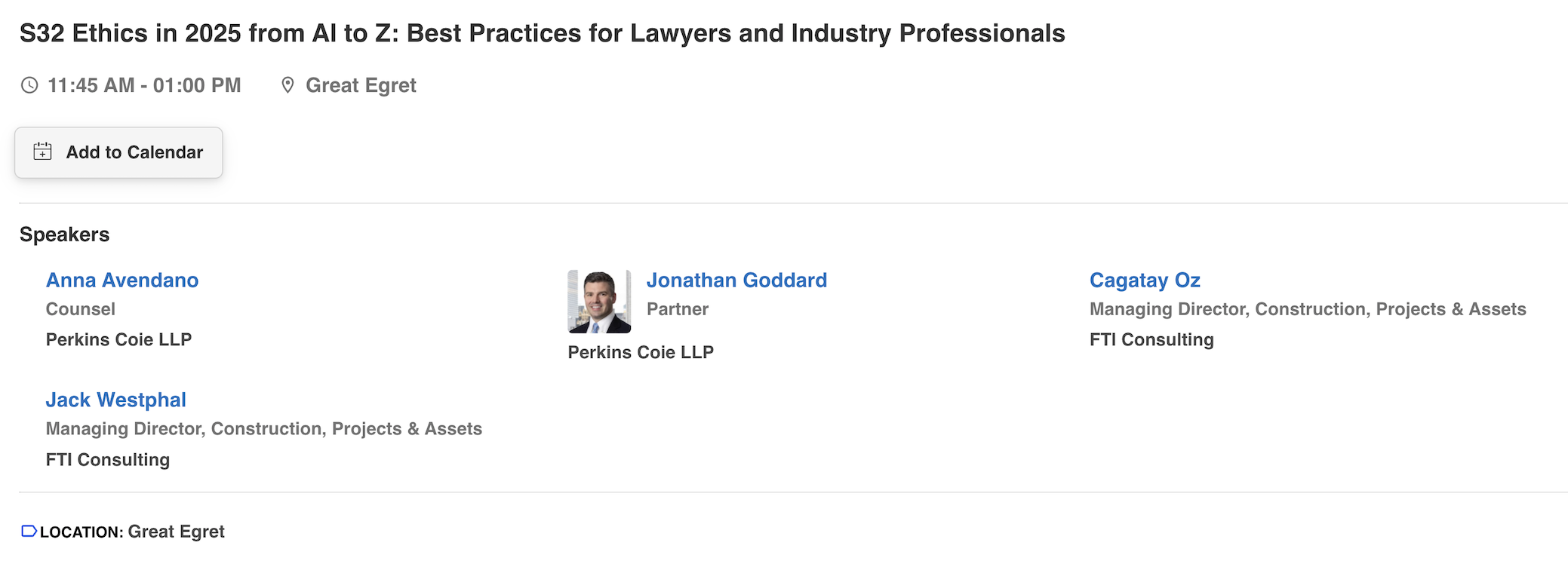NEW YORK – Artificial intelligence (AI) has crept its way into a lot of “knowledge work” disciplines such as the legal profession, raising plenty of ethical questions along the way. Cagatay Oz, managing director, Construction, Projects & Assets, at FTI Consulting (a CSC sponsor) has closely tracked its progress.
 Some of the specific ethical challenges experts face involve ownership of the work, transparency in the methodology used when applying AI tools, and the potential risk of hallucinations when AI relies on non-existent source data. Oz will discuss two recent cases during a CSC panel called “Ethics in 2025 from AI to Z: Best Practices for Lawyers and Industry Professionals.”
Some of the specific ethical challenges experts face involve ownership of the work, transparency in the methodology used when applying AI tools, and the potential risk of hallucinations when AI relies on non-existent source data. Oz will discuss two recent cases during a CSC panel called “Ethics in 2025 from AI to Z: Best Practices for Lawyers and Industry Professionals.”
According to Oz, in Matter of Weber (N.Y. Surrogate’s Ct. 2024), the expert utilized an AI tool to cross-check damage calculations, and the court raised concerns regarding the transparency of the AI tool’s calculations. Another example is Kohls et al. v. Ellison et al., No. 0:2024-cv-03754, where an expert’s declaration included citations to non-existent academic articles, a clear instance of AI hallucination.
“AI is certainly a fast-developing area, but the core ethical principles remain the same,” Oz says. “Professional organizations, such as the AICPA, provide ethical guidelines and codes of conduct that can serve as a steady reference point, even as technology continues to evolve.”
Clients are increasingly engaged in discussions about the ethical use of AI and discovery tools and Oz sees a clear interest in exploring how these technologies can improve efficiency and analysis—while also acknowledging that clients remain cautious in how they adopt and rely on them.
“The level of concern among clients often depends on how and where these tools are applied,” Oz says. “In project advisory work, the adoption tends to be more straightforward. In dispute or expert-related work, there is naturally a higher level of scrutiny, so the clients are proceeding more carefully in these areas.”
Thursday, Dec. 11


